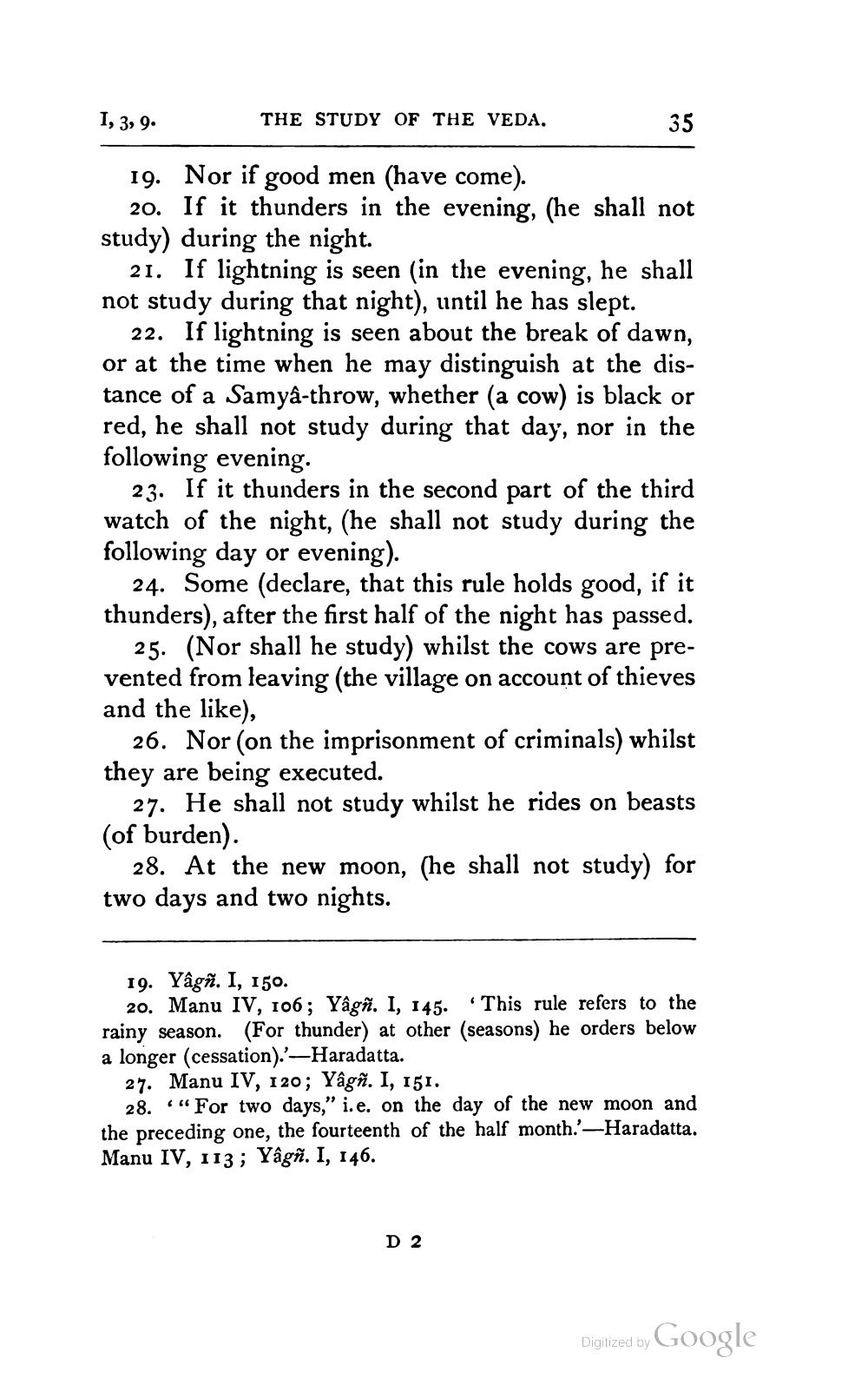________________
I, 3, 9.
19. Nor if good men (have come).
20. If it thunders in the evening, (he shall not study) during the night.
21. If lightning is seen (in the evening, he shall not study during that night), until he has slept.
22. If lightning is seen about the break of dawn, or at the time when he may distinguish at the distance of a Samyâ-throw, whether (a cow) is black or red, he shall not study during that day, nor in the following evening.
THE STUDY OF THE VEDA.
23. If it thunders in the second part of the third watch of the night, (he shall not study during the following day or evening).
24. Some (declare, that this rule holds good, if it thunders), after the first half of the night has passed.
35
25. (Nor shall he study) whilst the cows are prevented from leaving (the village on account of thieves and the like),
26. Nor (on the imprisonment of criminals) whilst they are being executed.
27. He shall not study whilst he rides on beasts (of burden).
28. At the new moon, (he shall not study) for two days and two nights.
19. Yâgñ. I, 150.
20. Manu IV, 106; Yâgñ. I, 145. This rule refers to the rainy season. (For thunder) at other (seasons) he orders below a longer (cessation).'-Haradatta.
27. Manu IV, 120; Yâgn. I, 151.
28. "For two days," i. e. on the day of the new moon and the preceding one, the fourteenth of the half month.'-Haradatta. Manu IV, 113; Yâgn. I, 146.
D 2
Digitized by
Google




